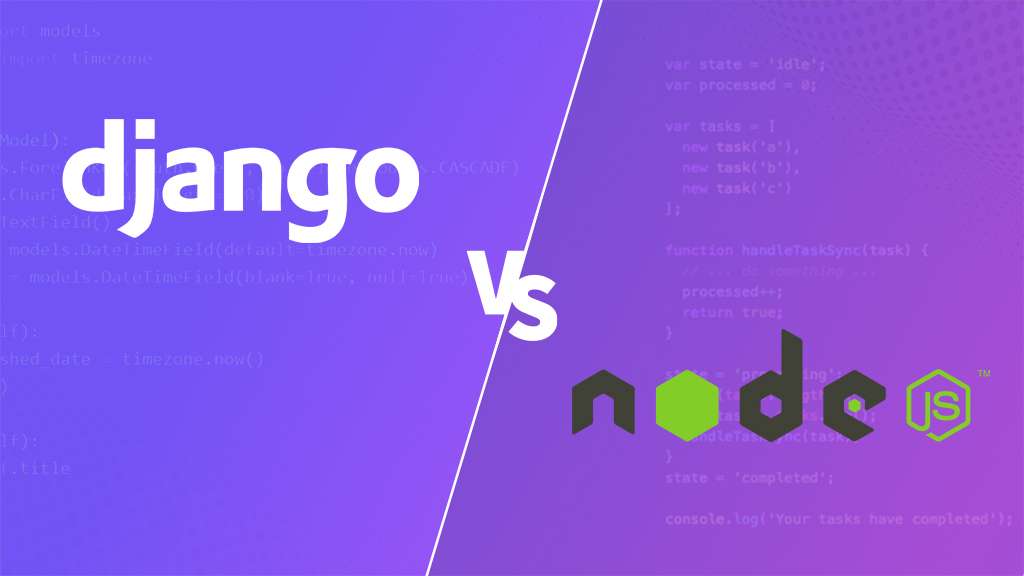
Your hosting isn’t failing – it’s outgrowing you. Most website owners learn this the hard way:
Eight months of smooth performance.
Then suddenly:
– slow checkout
– timeouts during peak hours
– random 500 errors
– customers complaining before you even notice
And the support ticket response? “Please upgrade your plan.”
But what if you don’t need an expensive dedicated server?
What if the real fix costs less than your weekend getaway?
Cheap VPS hosting gives you the dedicated CPU, RAM, and speed your site actually needs without the premium price tag.
Let’s break down when it’s time to upgrade and which VPS features actually affect performance.
VPS vs Shared Hosting: The Real Differences Nobody Mentions
When your site outgrows shared hosting, these differences become painfully obvious.
A VPS splits a single physical server into isolated virtual environments, each with dedicated CPU, RAM, and storage that no other website can access.
Shared hosting places hundreds of sites on the same server, all competing for the same resources.
If one site gets hacked, you’re exposed.
If one site’s traffic surges, your site slows.
Here are the core differences you’ll actually notice when running your website:
| Feature | Shared Hosting | VPS Hosting |
| Resources | Shared with hundreds | Dedicated allocation |
| Performance | Inconsistent | Predictable |
| Control | Limited | Root access |
| Isolation | None | Complete |
| Scalability | Requires migration | Instant upgrades |
After switching from shared hosting to a VPS, one e-commerce client reduced page load time from 4.8 seconds to just 1.4 seconds, and their conversions jumped 23% in the first month.
How Much Faster Will Your Site Actually Load?
Speed differences aren’t subtle. Load time comparison:
- Shared hosting: 3-5 seconds average
- Budget VPS: 1-2 seconds average
- Optimized VPS: Under 1 second
Google’s 2023 research found that load times jumping from 1 to 5 seconds increase bounce probability by 90% ( Think with Google, Mobile Page Speed Study). Sites taking 6+ seconds see bounce rates more than double. That’s not a theory. Slow sites lose half their visitors before content even loads.
The Features That Matter (And the Ones That Don’t)
Not all cheap VPSs deliver the same value. These features determine real performance.
NVMe Storage Speed
Traditional SATA SSDs read data at 550MB/s. NVMe storage hits 3,500MB/s—5-10 times faster.
What this means for your site:
- Database queries execute in milliseconds
- Images and media load instantly
- Plugin operations don’t create bottlenecks
- File uploads complete quickly
Sites using NVMe storage consistently outperform SATA-based hosting in real-world tests.
KVM Virtualization Technology
KVM (Kernel-based Virtual Machine) provides near-native hardware performance through direct hardware access.
Your applications run almost as fast as dedicated hardware at a fraction of the cost. No virtualization overhead is slowing things down.
Dedicated Resource Allocation
“Dedicated” matters here. Your CPU cores, RAM, and bandwidth are yours exclusively.
Shared hosting advertises “unlimited” while throttling accounts that actually use resources. VPS guarantees specific allocations that neighbors can’t steal.
Root Access and Control
Install custom software. Configure security your way. Optimize every setting for your specific needs.
Shared hosting locks you into their configuration. VPS gives you complete control over your environment.
Instant Scalability
Traffic spike during a campaign? Scale resources in minutes without migration or downtime.
Shared hosting forces plan upgrades with downtime. VPS scales on demand.
Linux vs Windows: The 2-Minute Decision Guide
Your application stack determines this choice.
Choose Linux VPS for:
- WordPress, Joomla, Drupal, or PHP-based platforms
- Python, Ruby, Node.js applications
- MySQL or PostgreSQL databases
- Apache or Nginx web servers
Linux offers better value for web hosting with no licensing fees and a larger community support.
Choose Windows VPS only for:
- ASP.NET or .NET Core applications
- Microsoft SQL Server databases
- IIS web server requirements
- Active Directory integration
Windows VPS hosting requires licensing, but it becomes necessary for Microsoft stack applications. For standard websites, Linux VPS delivers superior performance and flexibility.
When Small Businesses Need VPS
Don’t upgrade too early. Don’t wait too long either. Clear upgrade signals:
- Consistent traffic above 5,000-10,000 monthly visitors
- Site slowdowns during business hours
- Shared hosting throttles your account
- Need custom software installation
- Running an e-commerce business with payment processing
- Security requirements demand root access
- Regular site crashes or downtime
Calculate your actual costs. Site downtime costing lost sales? Slow load times reducing conversions? VPS often pays for itself quickly.
How VPS Isolation Protects You from Neighbor Attacks
Shared hosting’s critical vulnerability: one compromised neighbor account exposes everyone on the server.
VPS isolation protects through:
- Complete environment separation blocks cross-account breaches
- Root access for custom firewall configuration
- Ability to implement advanced security measures
- DDoS protection at the server level
- Independent security updates and patches
- Dedicated IP address
Had a client whose shared hosting suffered malware infection from a neighboring site. Their database got corrupted, losing two days of orders. VPS isolation prevents this scenario entirely.
Managed vs Unmanaged VPS
Managed VPS is like hiring a maintenance team. You get access to the building, but someone else handles the plumbing, electrical, and security updates. Here’s what they manage:
- Automatic software updates
- Security patch installation
- Server monitoring and maintenance
- Technical support for server issues
- Backup management
- Performance optimization
Best for business owners without technical teams or those who value time over cost savings. Unmanaged VPS provides:
- Complete server control
- Root access for customization
- Lower overall cost
- Flexibility for custom configurations
Requires server administration knowledge and time for maintenance tasks.
Choose based on technical expertise and time availability. Most small businesses benefit from managed VPS.
Choosing the Right Datacenter for Your Audience
Server location impacts load times significantly.
Hosting your site on servers geographically close to your audience reduces latency by 200-400 milliseconds. That’s 0.2-0.4 seconds added to every page load when hosting far from visitors.
Multiple datacenter options let you choose optimal locations for your target audience. Reducing initial server response time starts with smart datacenter selection.
How to Scale Resources Without Moving Sites
Shared hosting forces site migration when outgrowing plans. Downtime. DNS changes. Configuration risks.
VPS scales instantly. Need more RAM? Add it in minutes. Need extra storage? Expand on demand. Files stay in place. Configuration remains intact.
This flexibility proves critical during growth phases. Traffic surge for a campaign? Scale up temporarily. After the rush? Scale back down.
Scaled VPS resources 30+ times for various clients. Never experienced downtime. Never had migration issues.
BigCloudy VPS Hosting: The Features That Actually Matter
Need a starting point? Look for VPS providers offering NVMe storage, KVM virtualization, and root access across all plans – not just premium tiers. BigCloudy and similar quality hosts include these as standard, not upgrades. The 99.9% uptime guarantee matters too – you’re paying for reliability, not just resources.
What you get:
- NVMe storage across all plans (not SATA)
- KVM virtualization for maximum performance
- Unlimited bandwidth included
- Free migration with expert support
- Full root access on every plan
- 99.9% uptime guarantee
- 24/7 support via chat, phone, ticket
- Multiple control panel options (cPanel, CyberPanel, Plesk, DirectAdmin)
- Choice of Linux distributions or Windows Server
- Global datacenter locations
- Automated deployment in minutes
Explore our Linux VPS Hosting or Managed VPS Plans for businesses.
The Migration Process (Simpler Than You Think)
Switching to VPS hosting typically takes 2-4 hours with minimal downtime when properly managed. BigCloudy offers free migration services handling:
- Complete file transfers
- Database migration
- DNS configuration
- Testing before going live
- Support throughout the process
Most migrations are completed with under 5 minutes of actual downtime.
Quick Tips That Make Your VPS Faster
Maximize your VPS performance through smart configuration. Essential optimizations:
- Enable caching at the server level
- Compress images before uploading
- Use CDN for global content delivery
- Implement lazy loading for media
- Minimize database queries
- Keep software updated
Improving WordPress site performance becomes easier with VPS-level control over server configuration.
FAQs
Core features remain similar – dedicated resources, root access, isolation. Price differences usually reflect management level, resource allocations, and support quality. Budget VPS provides essential performance benefits. Premium VPS adds managed services and higher resource limits. Most small businesses find that budget VPS delivers the performance they need.
Yes, through proper migration planning. Free migration services transfer files, databases, and configurations while keeping your current site active. DNS switches after testing confirms everything works correctly. Downtime typically stays under 5 minutes.
Managed VPS requires minimal technical skills – the provider handles updates, security, and maintenance. Unmanaged VPS needs command-line familiarity and server administration knowledge. Beginners should start with a managed VPS.
Entry-level VPS comfortably supports 10,000-50,000 monthly visitors, depending on site optimization. That’s 300-1,500 daily visitors. Actual capacity varies with content type, database efficiency, and page complexity.
Choose Linux unless applications specifically require Windows Server. Linux offers better web hosting performance, costs less (no licensing), and works with WordPress and most CMS platforms. Windows becomes necessary only for ASP.NET, Microsoft SQL Server, or Active Directory needs.









